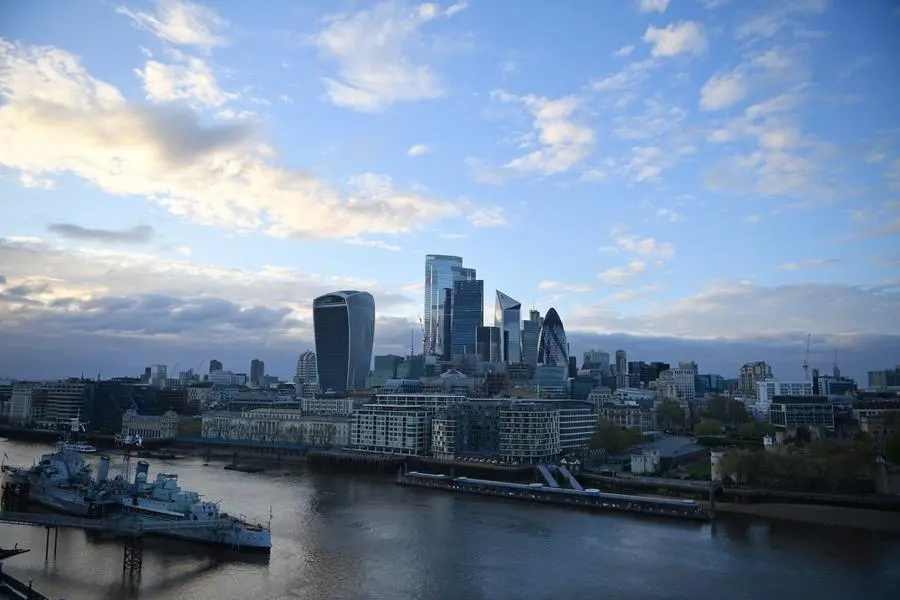PHOTO
The UK government's controversial use of former military bases and a barge to house asylum seekers is set to cost more than continuing to use hotels, a public-spending watchdog said Wednesday.
The finding, which undermines the official basis for using the sites, comes as ministers grapple with how to reduce the spiralling costs of housing the growing backlog of more than 100,000 asylum seekers.
As part of its strategy, Prime Minister Rishi Sunak's ruling Conservatives are pushing ahead with contentious plans to deter new arrivals crossing the Channel on small boats by trying to deport some migrants to Rwanda.
Wrangling over legislation to overcome legal challenges which have stalled that effort returns to parliament on Wednesday.
The politically potent issue has proved a persistent headache for Sunak as he prepares to call a general election later this year.
The growing numbers of migrants landing on the shores of southeast England in recent years has prompted the interior ministry to increase its use of hotels for housing, leading to escalating costs.
By last December, the ministry was providing accommodation for around 106,500 people, with 45,800 in hotels, according to the National Audit Office (NAO).
The ministry expects that to cost £4.7 billion ($6 billion) in the financial year to the end of this month, including £3.1 billion on hotels, the watchdog reported in its "value for money" review of the spending.
In a bid to lower the bill, the ministry has turned to converting former military bases and leasing an accommodation barge called the Bibby Stockholm to house asylum seekers.
But in trying to "rapidly" switch to these "large sites" it had incurred unnecessary costs, as well as risks, and ultimately failed to reduce the eye-watering spending totals, the NAO found.
- Set-up costs -
The watchdog said the latest estimates suggest the sites will cost £46 million more than using hotels.
"The Home Office has made progress in its plan to reduce the use of hotels to accommodate people seeking asylum," it said.
"But, in rapidly progressing its plans to establish large sites, it has incurred nugatory spending and increased risk.
"It appears inevitable that, collectively, these early sites will now cost more than the alternative of using hotels."
The NAO noted that set-up costs had far exceeded estimates, with refurbishment bills for two former military sites surging from £5 million each, to £49 million for one and £27 million for another.
Only two of four planned sites had opened, while occupancy rates at both have been well below expectations, again hampering cost-saving.
The NAO urged the ministry "to build in flexibility" into its asylum accommodation planning and to "reflect on the lessons" from its policy.
A ministry spokeswoman said: "While the NAO's figures include set-up costs, it is currently better value for money for the taxpayer to continue with these sites than to use hotels."
Use of hotels to house asylum seekers was "unacceptable", she added.





















